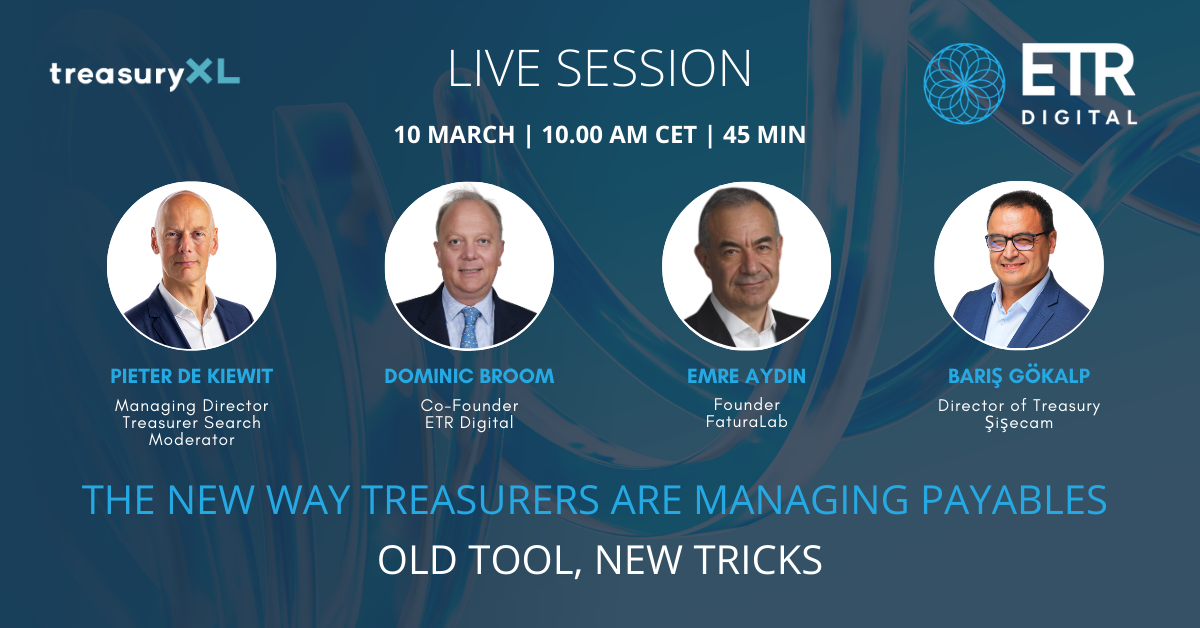Update Digital Finance Summit 2024
By François de Witte
For the 9th year, Fintech Belgium organized its annual seminar, the Digital Finance Summit 2024, in Brussels on December 6, 2024. The main theme was “Leveraging Natural Intelligence in Digital Finance.” Over 350 participants attended.
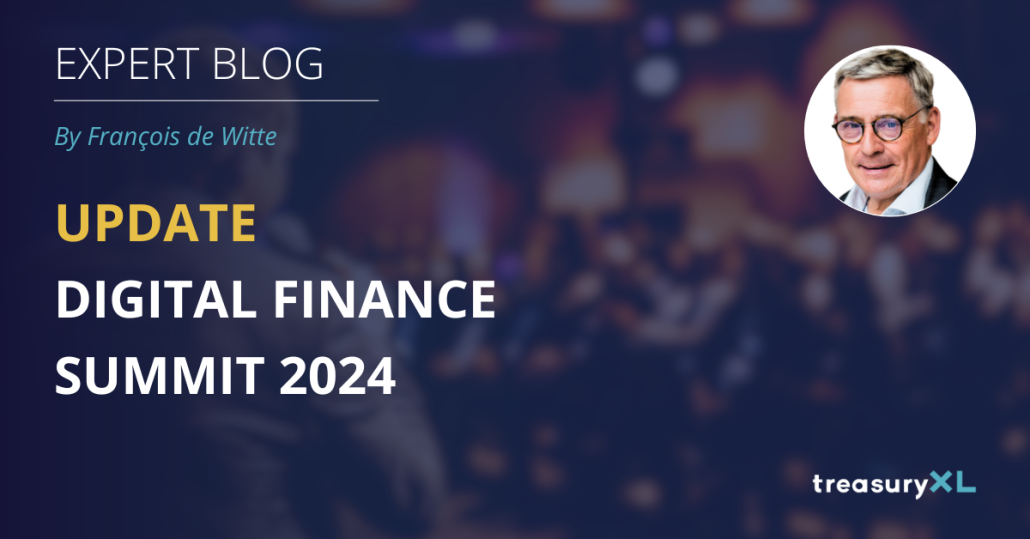
The central theme highlighted the importance of blending human creativity with technological power. As mentioned during the opening speeches “Technology isn’t magic; it’s the people behind it who bring real intelligence, empathy and vision”.
Some takeaways
Main stage intervention
In her keynote speech, Miss. Alicia Ngomo Fernandez, Head of Visa Consulting & Analytics from Visa illustrated the values that AI is bringing:
- Enhancing customer experience: e.g. Klarna – AI reduced the time of helpdesk from 11 to 2 minutes.
- Managing fraud, risk & security
- Improving operational efficiency
- New revenue streams & innovation: this is the most undetermined but will bring value.
The key factors for the further development of this technology will be customer adoption and the impact of regulations, including the EU AI Act.
Other speakers highlighted the importance of staying in control, keeping humans in the loop, increasing the relevance of AI tech and making sure it does not harm society.
Roundtables on Regulation
Many organizations have problems in being kept up to date with regulations. There is a clear need to make regulations less complex, in particular for smaller organizations. The EU Commission might consider having a lighter regulation or some exemptions for startups and smaller enterprises, to keep the UE as a good breeding place for them. There are currently some startups that first go to less regulated countries in the start phase and then move to the EU in the scaleup phase.
Collaboration with regulators is key, preferably before the regulation enters into force. A good example hereof is in the area of fraud prevention, where Regulators should enable cooperation between market actors, e.g. by facilitating the sharing of information on fraud. Another example is to work on sandboxes to test solutions with local regulators.
We see some initiatives to simplify the regulatory burden of the KYC for corporates. Kube in Belgium is an example. Kube is a platform where precise and verified data can be easily exchanged. Its Databook Rulebook has been validated by Deloitte, amongst others for compliance with all the prevailing regulations. The documents include corporate data, UOB, Fatca, etc., and in 2025 ESG data will also be included. The initiative is currently limited to Belgium, but the logical next step would be to go more internationally.
Regulations can also be an opportunity. The projected Data Governance Act will enable a larger data collaboration, and the creation of new business models, with the emergence of data intermediaries. Another example of this is the EU AI Act, aiming to regulate artificial intelligence (AI) to ensure better conditions for the development and use of this innovative technology.
Workshop on New Regulations on IT Security
DORA (Regulation (EU) 2022/2554 of the European Parliament and of the Council of 14 December 2022 on digital operational resilience for the financial sector) and NIS2 (Network and Information Security Directive of December 27, 2022) (have an important impact on financial institutions and corporates. They place a strong emphasis on cybersecurity risk management, requiring also SMEs to reinforce their defenses against cyber threats. Compliance with these standards, not only safeguards the enterprise but also fosters trust among customers, partners and investors
Companies need to strengthen their cybersecurity protection. This includes: addressing supply chain security, streamlining incident reporting obligations and introducing strict supervisory and enforcement measures. The emphasis should be both on detecting intrusion and extrusion (mala fide extraction of data out of the company) and on recovery in case a company has been subject to cyberattacks.
It is not only an IT project: It requires to have all the stakeholders on board. It is a clear requirement from DORA that: “The Board of Directors and the CEO must have the knowledge and skills necessary to assess cybersecurity risks, challenge security plans, discuss activities, formulate opinions, and evaluate policies and solutions that protect the assets …”.
Workshop on successful AI usage
-
- This session brought together 4 successful companies to share their real-world use cases of AI in financial services:
SevenYoken: provides an enterprise-grade API platform for certified autonomous accounting analysis and decision-making. It is based on AI software enabling also to generate a financial profile with reduced cycle time and elimination of manual overhead. It aims also to provide an independent financial health check of companies, enabling a large productivity boost;
- Basikon: provides a core lending and banking platform. They used generative AI to develop these platforms including the database, dashboards, simulations on loan proposals, partnerships, etc.
- Dataiku: has built an AI platform for design and production that delivers use cases in days, amongst others by automating the extraction of data. They also provide solutions to address data quality issues, and increase reporting efficiency & accuracy hence reducing substantially the manual work. They have also solutions in the AML area, going from rule-based AML to Machine learning predictive AML, hence reducing the false positives.
- MDOTM: is a global provider of AI-driven investment solutions for institutional investors, pension funds and banks. They created a platform called Sphere, that leverages Analytical & Generative AI to deliver forward-looking investment insights, help institutional investors build and rebalance portfolios at scale and get automated reporting and commentaries on their portfolios’ positioning. Thanks to this, asset managers are able to make customized coherent, and reliable commentaries for every single portfolio.
- This session brought together 4 successful companies to share their real-world use cases of AI in financial services:
Networking: A fantastic ecosystem of entrepreneurship and innovation
I have spent also a long time discussing with Fintech entrepreneurs. There are a lot of interesting projects transpiring innovation. The Fintech world is an ecosystem where agility, entrepreneurship, compliance and technological innovation co-exist and create a strong emulation cocktail.
Conclusion
This conference was a good forum to get an insight in the Belgian FinTech market. I saw a lot of interesting initiatives and consider that Fintech will bring a lot of added value in the payments and corporate treasury landscape.
If you want to learn more on this topic, I invite you to attend the one day training session, which I animate on the topic on March 24, 2025: “PSD2 & 3 and the PSR: impact on open banking and the financial ecosystem”:Click for more information and to register on the button below.
Can’t get enough? Check out these latest items
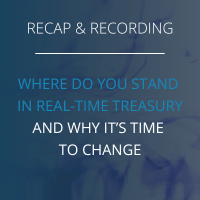 https://treasuryxl.com/wp-content/uploads/2026/02/Live-Session-FinanceKey-3.png
200
200
treasuryXL
https://treasuryxl.com/wp-content/uploads/2018/07/treasuryXL-logo-300x56.png
treasuryXL2026-03-02 11:00:542026-03-02 11:25:48Recap & Recording: Where Do You Stand in Real-Time Treasury – and Why It’s Time to Change
https://treasuryxl.com/wp-content/uploads/2026/02/Live-Session-FinanceKey-3.png
200
200
treasuryXL
https://treasuryxl.com/wp-content/uploads/2018/07/treasuryXL-logo-300x56.png
treasuryXL2026-03-02 11:00:542026-03-02 11:25:48Recap & Recording: Where Do You Stand in Real-Time Treasury – and Why It’s Time to Change https://treasuryxl.com/wp-content/uploads/2025/11/Aastha-blog.png
200
200
treasuryXL
https://treasuryxl.com/wp-content/uploads/2018/07/treasuryXL-logo-300x56.png
treasuryXL2026-03-02 07:00:522026-02-27 14:45:28Profitability is Opinion. Cash is Fact. Balance Sheet is Survival.
https://treasuryxl.com/wp-content/uploads/2025/11/Aastha-blog.png
200
200
treasuryXL
https://treasuryxl.com/wp-content/uploads/2018/07/treasuryXL-logo-300x56.png
treasuryXL2026-03-02 07:00:522026-02-27 14:45:28Profitability is Opinion. Cash is Fact. Balance Sheet is Survival. https://treasuryxl.com/wp-content/uploads/2024/01/Template_VACANCY-featured.png
200
200
treasuryXL
https://treasuryxl.com/wp-content/uploads/2018/07/treasuryXL-logo-300x56.png
treasuryXL2026-02-27 07:00:272026-02-26 14:56:40Vacancy Treasury Analyst – Utrecht
https://treasuryxl.com/wp-content/uploads/2024/01/Template_VACANCY-featured.png
200
200
treasuryXL
https://treasuryxl.com/wp-content/uploads/2018/07/treasuryXL-logo-300x56.png
treasuryXL2026-02-27 07:00:272026-02-26 14:56:40Vacancy Treasury Analyst – Utrecht https://treasuryxl.com/wp-content/uploads/2026/02/Live-Session-ETR-Digital.png
200
200
treasuryXL
https://treasuryxl.com/wp-content/uploads/2018/07/treasuryXL-logo-300x56.png
treasuryXL2026-02-26 11:49:192026-02-26 11:51:12Live Session: The New Way Treasurers Are Managing Payables – Old Tool, New Tricks
https://treasuryxl.com/wp-content/uploads/2026/02/Live-Session-ETR-Digital.png
200
200
treasuryXL
https://treasuryxl.com/wp-content/uploads/2018/07/treasuryXL-logo-300x56.png
treasuryXL2026-02-26 11:49:192026-02-26 11:51:12Live Session: The New Way Treasurers Are Managing Payables – Old Tool, New Tricks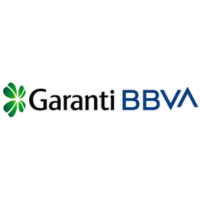 https://treasuryxl.com/wp-content/uploads/2025/10/Garanti-BBVA.png
200
200
treasuryXL
https://treasuryxl.com/wp-content/uploads/2018/07/treasuryXL-logo-300x56.png
treasuryXL2026-02-26 08:55:122026-02-26 09:00:51ALM Professional @ Garanti BBVA International
https://treasuryxl.com/wp-content/uploads/2025/10/Garanti-BBVA.png
200
200
treasuryXL
https://treasuryxl.com/wp-content/uploads/2018/07/treasuryXL-logo-300x56.png
treasuryXL2026-02-26 08:55:122026-02-26 09:00:51ALM Professional @ Garanti BBVA International https://treasuryxl.com/wp-content/uploads/2025/10/Garanti-BBVA.png
200
200
treasuryXL
https://treasuryxl.com/wp-content/uploads/2018/07/treasuryXL-logo-300x56.png
treasuryXL2026-02-26 08:47:112026-02-26 08:56:21ALM Associate @ Garanti BBVA International
https://treasuryxl.com/wp-content/uploads/2025/10/Garanti-BBVA.png
200
200
treasuryXL
https://treasuryxl.com/wp-content/uploads/2018/07/treasuryXL-logo-300x56.png
treasuryXL2026-02-26 08:47:112026-02-26 08:56:21ALM Associate @ Garanti BBVA International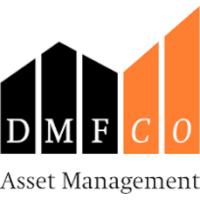 https://treasuryxl.com/wp-content/uploads/2026/02/DMFCO.png
200
200
treasuryXL
https://treasuryxl.com/wp-content/uploads/2018/07/treasuryXL-logo-300x56.png
treasuryXL2026-02-26 08:26:152026-02-26 09:00:42Analist Capital Markets @ DMFCO Asset Management
https://treasuryxl.com/wp-content/uploads/2026/02/DMFCO.png
200
200
treasuryXL
https://treasuryxl.com/wp-content/uploads/2018/07/treasuryXL-logo-300x56.png
treasuryXL2026-02-26 08:26:152026-02-26 09:00:42Analist Capital Markets @ DMFCO Asset Management https://treasuryxl.com/wp-content/uploads/2025/04/Treasury-Spring-van-Template-2.png
200
200
treasuryXL
https://treasuryxl.com/wp-content/uploads/2018/07/treasuryXL-logo-300x56.png
treasuryXL2026-02-26 07:00:212026-02-25 15:33:53Rollercoaster markets as rates stay on hold
https://treasuryxl.com/wp-content/uploads/2025/04/Treasury-Spring-van-Template-2.png
200
200
treasuryXL
https://treasuryxl.com/wp-content/uploads/2018/07/treasuryXL-logo-300x56.png
treasuryXL2026-02-26 07:00:212026-02-25 15:33:53Rollercoaster markets as rates stay on hold https://treasuryxl.com/wp-content/uploads/2023/03/Treasurer-Search-Logo.png
200
200
treasuryXL
https://treasuryxl.com/wp-content/uploads/2018/07/treasuryXL-logo-300x56.png
treasuryXL2026-02-25 14:32:182026-02-25 14:32:18Treasury Analyst @ Treasurer Search
https://treasuryxl.com/wp-content/uploads/2023/03/Treasurer-Search-Logo.png
200
200
treasuryXL
https://treasuryxl.com/wp-content/uploads/2018/07/treasuryXL-logo-300x56.png
treasuryXL2026-02-25 14:32:182026-02-25 14:32:18Treasury Analyst @ Treasurer Search



